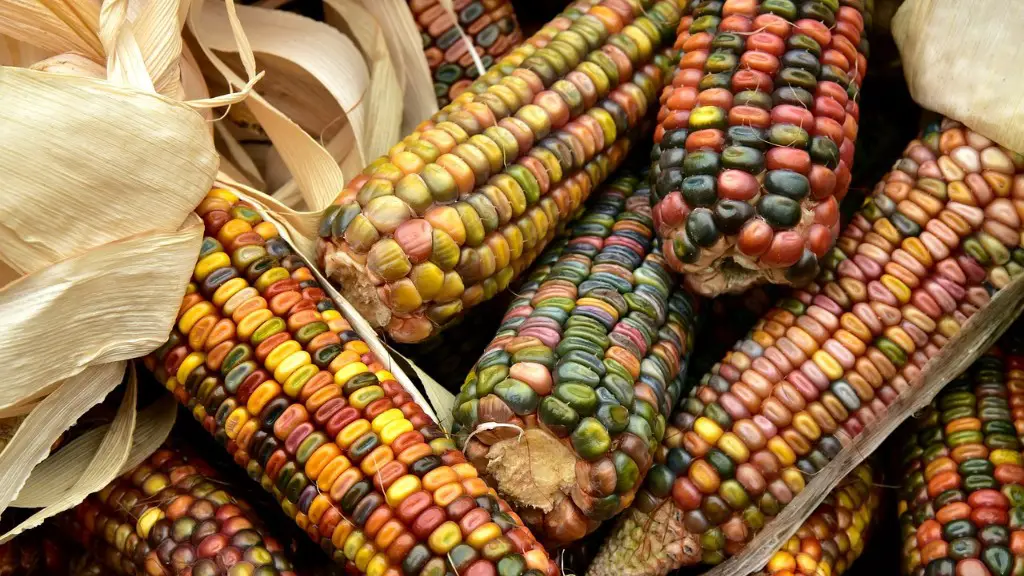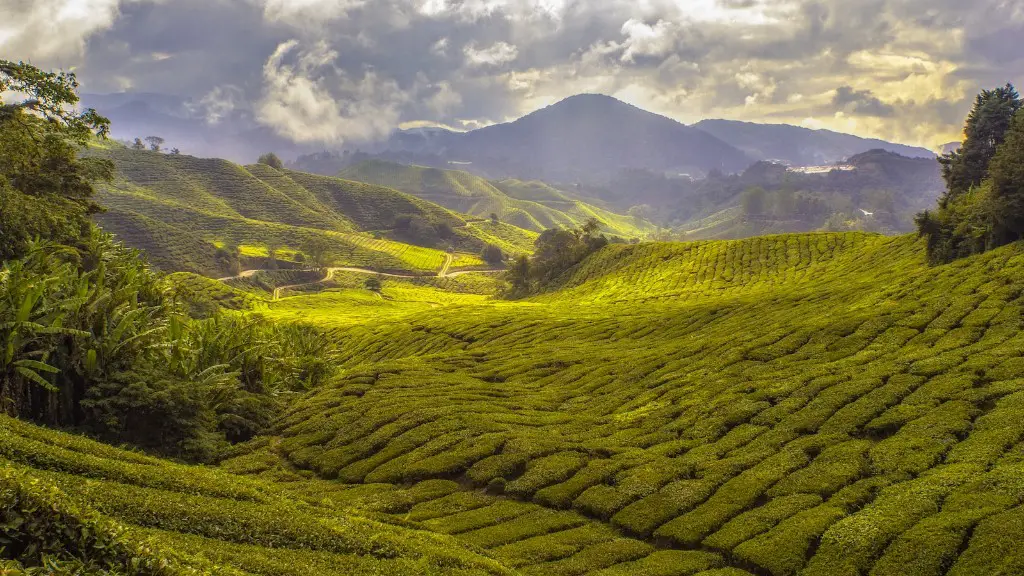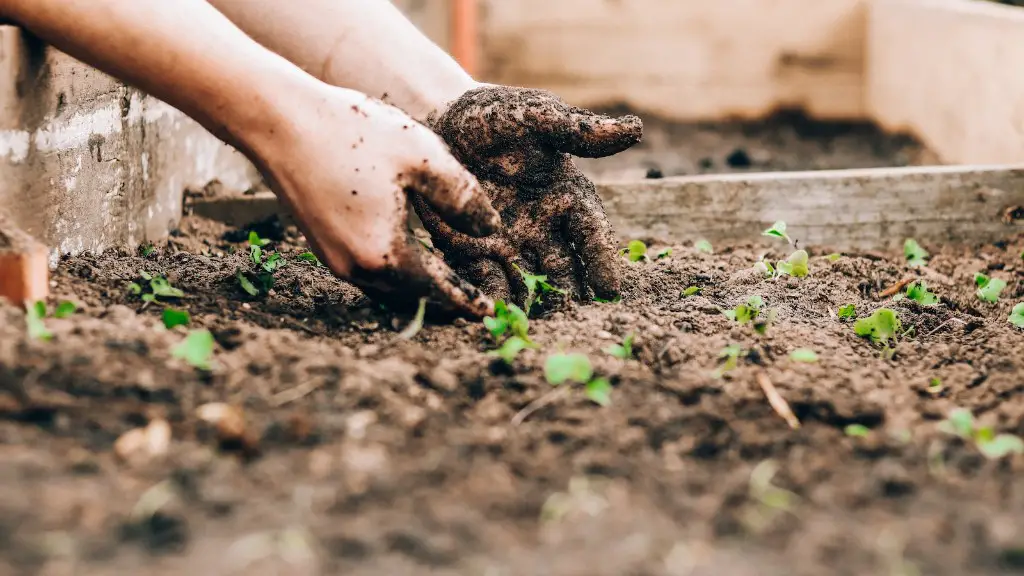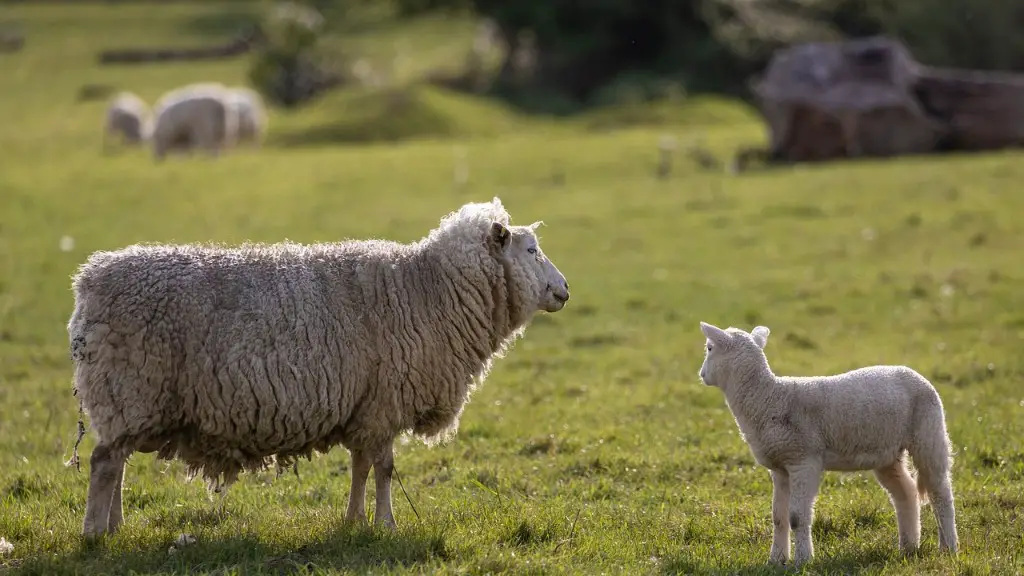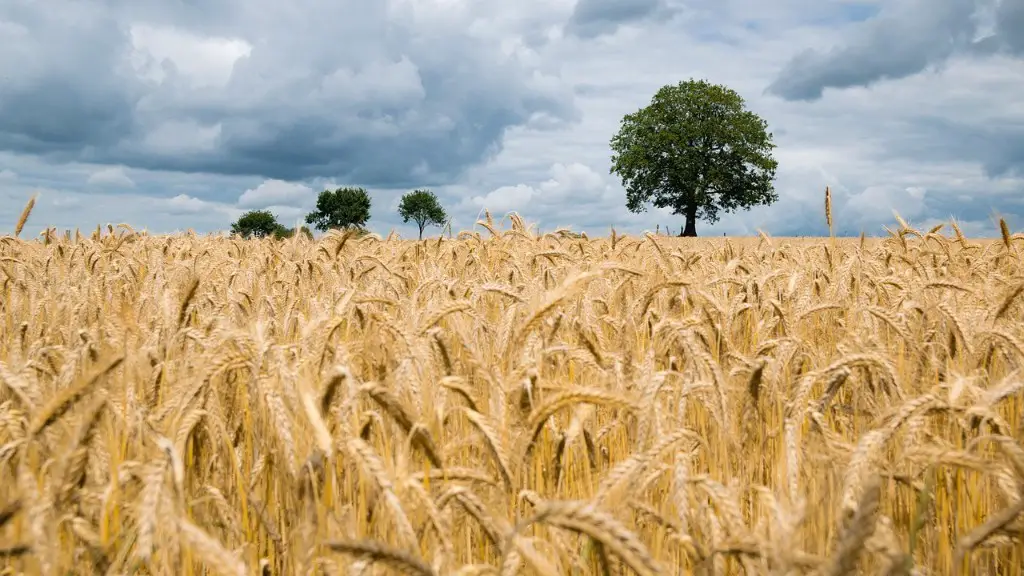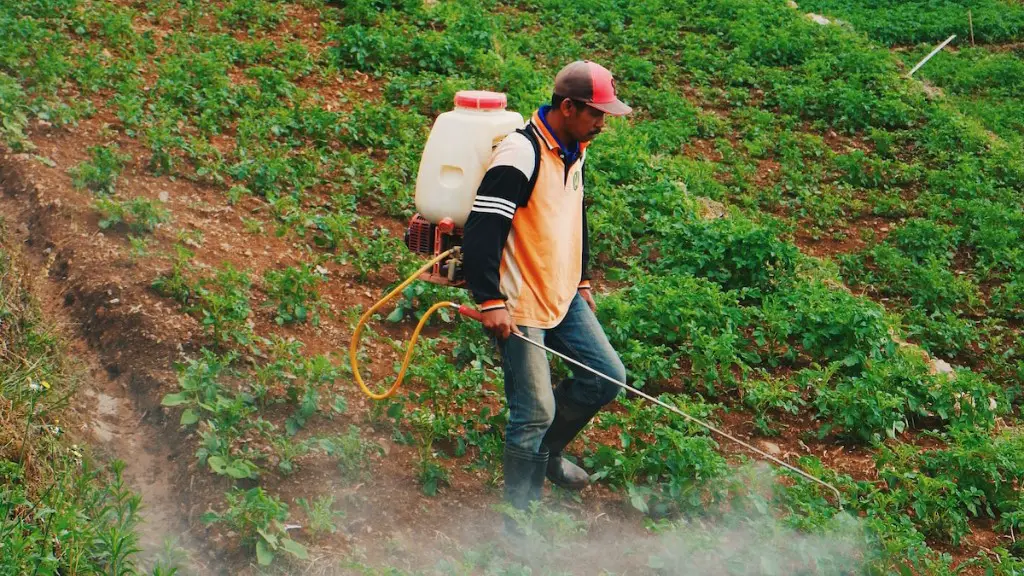Organic agriculture is a form of agriculture that relies on organic materials, such as manure, compost, and crop residues, to maintain soil fertility and control pests, rather than using synthetic fertilizers, pesticides, and other chemicals. While organic agriculture can be sustainable, there are a number of factors that need to be considered in order to ensure its long-term viability in the Philippines. These include the country’s climate, soil type, and water availability.
The sustainability of organic agriculture in the Philippines is highly dependent on the climate and the availability of land. Organic agriculture is less likely to deplete soil nutrients than conventional farming, and it also helps to conserve water resources. However, it is important to note that organic agriculture requires more land than conventional farming, and it is also more labor-intensive.
Is organic farming sustainable in the Philippines?
Organic farming is a type of agriculture that relies on ecological processes, biodiversity, and cycles adapted to local conditions, rather than on the use of inputs that turn out adverse effects. It is under the umbrella of sustainable agriculture but not a subset.
Organic agriculture is a type of farming that focuses on using natural processes and products, rather than agrochemicals, to grow crops and raise livestock. This type of farming can have a number of benefits, one of which is reducing the amount of non-renewable energy that is used. This is because organic agriculture requires less agrochemicals, which are made from fossil fuels. Additionally, organic agriculture can help to mitigate the greenhouse effect and global warming by sequestering carbon in the soil.
What is the current status of organic agriculture in the Philippines
The region’s organic agriculture sector is growing rapidly, with more and more farmers converting to organic practices. As of today, there are 39,46681 hectares devoted to organic agriculture, with 7,586 practitioners. The demand for organic products is also increasing, as consumers become more aware of the benefits of organic food. With continued growth, the organic agriculture sector will make a significant contribution to the region’s economy and food security.
The Philippines is a pioneer in sustainable farming practices in Asia, as recognized by AFACI. Through the implementation of ambitious initiatives, the Philippines is setting the standard for sustainable farming practices in Asia. These initiatives include the development of organic farming, the promotion of agroforestry, and the establishment of farmers’ markets.
Can we consider Philippines as a sustainable country?
The Philippines is one of the countries that is making an effort to improve its sustainability ranking. In 2020, the United Nations Sustainable Development ranked Philippines at 99 with a score of 655. The Philippines has made some strides in recent years to improve its environmental and social sustainability, but there is still much room for improvement. The Philippines has a long way to go to catch up to other countries in terms of sustainability, but it is making progress.
The EPI is a global environmental sustainability ranking that looks at a variety of factors, including air quality, water quality, biodiversity, and climate change. The Philippines scored poorly in all of these categories, with its worst showing in air quality, where it placed 177th out of 180 countries.
The poor showing in the EPI is yet another indication of the Philippines’ environmental sustainability problems. The country has been struggling to address environmental issues for years, and this latest ranking is a clear sign that more needs to be done.
The Philippines has made some progress on environmental sustainability in recent years, but it still has a long way to go. The government needs to do more to address the country’s environmental problems, and the people need to do their part as well. Only by working together can the Philippines hope to improve its environmental sustainability ranking in the future.
Why organic agriculture may not be so sustainable?
It is true that organic farms require more space to grow the same amount of produce as compared to farms that use synthetic fertilizers. However, this does not necessarily mean that deforestation is inevitable. There are many ways to increase crop yields without resorting to deforestation. For example, organic farmers can use cover crops and crop rotation to improve soil health and increase yields. In addition, organic farmers can use companion planting to create a more diverse and robust ecosystem that can support higher yields.
Organic food is food that is produced in accordance with organic farming standards. These standards are designed to promote ecological balance and sustainability. Organic food is free from synthetic chemicals and GMOs.
The global per capita consumption of organic food is highest in Denmark and Switzerland. This is likely due to the fact that these countries have strong agricultural policies that support organic farming. In addition, both countries have a strong commitment to food quality and safety.
Is organic really more sustainable
Organic food and sustainable farming are becoming more and more important as we face the challenges of climate change and the need to preserve our natural resources. Organic farming methods are more efficient and use less energy, resulting in fewer greenhouse gas emissions. They also often result in higher yields, even in times of drought. Sustainable farming practices help us to preserve our soils and water, and protect our wildlife and ecosystems.
The rising prices of energy, oil, fertilizer, wheat and wheat products, as well as export bans imposed by other countries, pose a serious risk to the Philippines. The Philippines is highly reliant on these key producing countries to fill its local production gap, and the continued price increases and export bans could have a devastating effect on the country. We urge the government to take action to ensure that the Philippines is not left behind in the global market. Thank you for your time.
Is organic farming profitable in Philippines?
Organic farming can certainly be profitable in the Philippines, but a lot will depend on the price of organic foods. If organic foods are priced high, farmers will be able to make a profit. However, if prices are low, farmers may not be able to make a profit. So it really all depends on the market prices for organic foods.
Organic farming has been shown to provide a number of sustained benefits, including increased productivity, higher income and improved soil quality. Farmers who have switched to organic methods have also found that insect bio-control is an effective and economical way to reduce pesticide use.
What are the 5 agricultural issues in the Philippines
The Philippines is one of the world’s top rice-producing countries, but its farmers face a number of serious challenges.
1) High Input Costs: Many Filipino farmers are simply unable to take their production further due to the high expense of many critical inputs.
2) Lack of Post-Harvest Facilities: There is a lack of infrastructure in many parts of the country that makes it difficult for farmers to properly store and process their rice.
3) Climate Change: The Philippines is particularly vulnerable to the effects of climate change, with rising sea levels and more extreme weather patterns posing a serious threat to rice production.
4) Market Forces: The global rice market is highly competitive, and farmers in the Philippines often have to sell their crop at low prices in order to remain competitive.
5) Land Rent: Many farmers in the Philippines are unable to afford the high cost of land rent, which makes it difficult for them to expand their operations.
6) Demographics: The Philippines has a rapidly growing population, which is putting pressure on the country’s limited land resources.
Although the Philippines has a wealth of biodiversity and natural resources, it is also facing significant environmental challenges. Deforestation, illegal logging and mining, overfishing, urbanization, and pollution are just some of the problems that are hindering socioeconomic progress. Even with some of the best environmental protection laws in the world, these challenges remain a substantial threat to the country’s resources and inhabitants.
Why Philippine agriculture is lagging behind?
The Philippines has been lagging behind other Asian countries for the last three decades, due to the slowdown of agricultural output growth. This is attributed to (1) land reform, (2) inadequate investment in traditional and other modern agricultural techniques by new smallholders, (3) climate disruptions, and (4) a .
The Philippines is among the top economies globally in terms of sustainability and economic prosperity, according to the latest Sustainability Trade Index (STI) 2022.
The Philippines scored high in the report, which measures economies’ behavior and effects of international trade on sustainability, ranking 6th regionally and 12th globally.
This is a significant improvement from the Philippines’ 19th place ranking in the STI 2020, and is a testament to the country’s commitment to sustainable development.
The STI 2022 is based on an analysis of 33 sustainability indicators across three dimensions: environmental, social, and economic.
The Philippines’ strong showing in the STI 2022 is due to its good performance in indicators such as air quality, renewable energy, biodiversity, and waste management.
The country’s top ranking in the STI is a recognition of its efforts to create a more sustainable future for all.
What is Philippine Strategy for Sustainable Development
The goal of the Philippine strategy for sustainable development (PSSD) is to achieve economic growth while protecting the country’s biological resources and its diversity, vital ecosystem functions, and overall environmental quality. The PSSD has a number of implementing strategies at its core, including:
-Improving environmental management and planning
-Enhancing the role of the private sector
-Adopting a more holistic approach to resource use
-Encouraging public participation
The PSSD is an important step towards ensuring the long-term sustainability of the Philippines’ natural resources.
The Philippines is home to many unique and endangered species of plants and animals, but human activity is putting this biodiversity at risk. Deforestation and forest degradation are major problems, as illegal fishing and illicit wildlife trade continue unabated. These activities need to be controlled in order to protect the country’s natural heritage.
Final Words
The Philippines is one of the world’s leading producers of organic agricultural products. The country’s tropical climate and diverse landscapes provide ideal conditions for growing a wide variety of crops, including fruits, vegetables, grains, and oils. In addition, the Philippines has a long history of traditional agricultural practices that are well-suited to organic production.
Despite these favorable conditions, organic agriculture in the Philippines faces several challenges. One major challenge is the high cost of organic certification. In order to be certified as “organic,” farmers must meet a set of strict standards set by the Philippine National Organic Agricultural Board. These standards requires significant investments in labor and materials, which many small-scale farmers cannot afford.
Another challenge facing organic agriculture in the Philippines is the limited availability of organic inputs. Fertilizers, pesticides, and other inputs that are approved for use in organic agriculture are often not available in the country. This lack of inputs can make it difficult for farmers to maintain organic certification and produce high-quality organic crops.
Despite these challenges, organic agriculture in the Philippines continues to grow. In recent years, the number of certified organic farms has increased, and the area devoted to organic production has expanded. With continued support from the
The Philippines is a country with vast agricultural resources, but organic agriculture is still in its early stages of development. The country has a long way to go to make organic agriculture more sustainable, but there are some promising signs. The government is investing in research and development, and private companies are beginning to invest in organic agriculture. If these trends continue, organic agriculture in the Philippines has the potential to be more sustainable.
